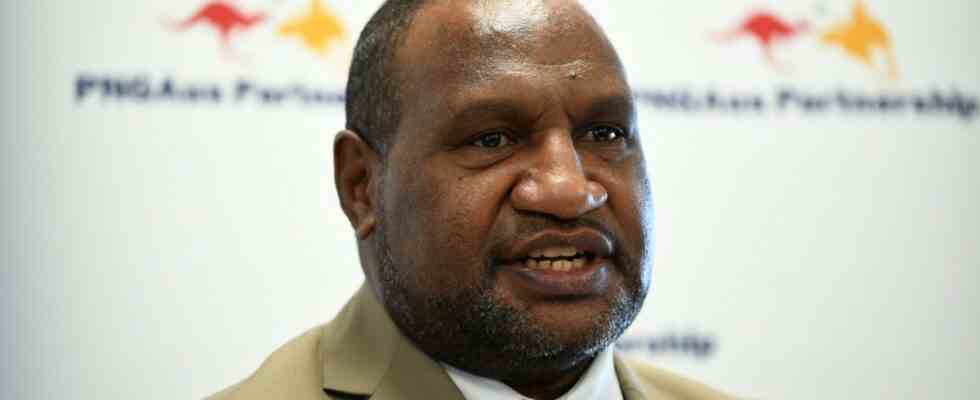Journalists can be a pain in the ass, they ask stupid questions and eat away at receptions. As a journalist, you can also understand that incumbents and important figures don’t feel like it. However, the relatively newly elected prime minister of Papua New Guinea, James Marape, 51, has now placed two ads in which he is asking “members of the media industry, national and international, to stop contacting him directly,” reports the British Guardians.
The elections in the Pacific island nation are among the most difficult in the world
“The Prime Minister has been accommodating and has responded openly to our media since taking office in 2019,” it said. “We would like to continue this partnership by simplifying your inquiries to our relevant ministries.” On the one hand, this is easy to understand. After all, not everyone can just ring Olaf Scholz directly or send him Whatsapps. However, politicians often give out their contact details to representatives of the media industry because they themselves are interested in so-called background talks or want to launch an assessment of the political situation. So was James Marape until he was sworn in as prime minister for a second time on August 9, after weeks of voting and election delays.
The elections in the Pacific island nation, which has only been independent from Australia since 1975, are among the most difficult in the world. Among other things, because of the geography, the poor transport infrastructure and the linguistic and cultural diversity. There are nine million people in Papua New Guinea who speak more than 800 languages. According to international observers and the local press, the election was accompanied by violence at polling stations, allegations of fraud and 50 deaths.
The new Parliament met while the counting of the votes was still ongoing. James Marape was elected Prime Minister by 97 votes to none, while his predecessor and only opposing candidate, Peter O’Neill, walked out in protest. In his subsequent speech, Marape apologized to the people who had been turned away from the polling stations due to problems with the electoral roll. There are still a few questions that one would have liked to ask him.
The Prime Minister’s media team called on political journalists in a Whatsapp group to “work for the good of our country”. This group also warned that if they failed to do so, the government would restrict access to Marape’s press conferences. It went on to say: “The media make or break leaders and paint a good or bad picture of their country and that of our children.” This follows the general trend in the Pacific Rim of wanting to control journalists.
In May, Wang Yi, China’s foreign minister, was visiting the region and complaints to Amnesty International mounted that journalists were being prevented from asking questions during the visits. In August the Solomon Islands government took control of a public broadcaster to screen news before it was broadcast. Foreign media should be banned from the country. In the weeks before, there had been critical international reports about a security agreement between the Solomon Islands and China, with which Beijing obviously wants to expand its influence in the region.
James Marape’s ad went on to say that all inquiries should be made in writing to his media office, whose email addresses were listed. There was no reply to the e-mail from the SZ for a statement on the matter by the time of going to press.

